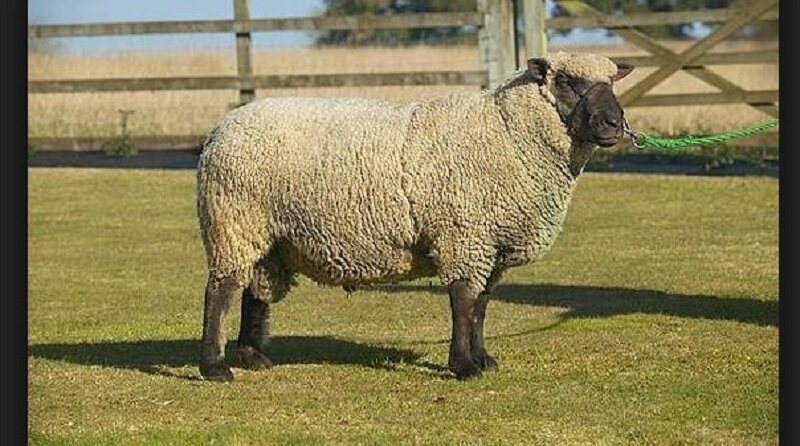Fairbrook – first class sheep farm

A fine Shropshire sheep. <em>Photo: Supplied</em>
Fairbrook Farm in Quail Valley became well-known as a first-class breeding sheep farm. In mid-1864 it was owned by Mr Evans, who was supported by his nephew Joseph Watkins in the care of the sheep.
The property was advertised for let in December 1877 for a period of seven to 10 years. At this time it consisted of 884 acres of freehold land and 532 acres of leasehold, with 700 sheep on the farm. Henry Tippett and John Ramsey went into a partnership arrangement, but this appears to be short-lived as in June 1878 Tippett purchased Ramsey’s interest in Fairbrook and the partnership was dissolved by mutual consent.
The farm was sold again in a clearing sale in 1880, purchased by James Fleming. In 1892, he put the property of 1530 acres of land and about 1000 sheep, up for sale.
The new owner, Mr George Edwin Field was the son of Thomas Field, brewer of Nelson. After finishing his education at Nelson College, he assisted his father in the brewery business but, with a liking for farming, he chose to take up the land at Quail Valley. Field had a keen interest in the welfare of public and was nominated for a seat on the Nelson Harbour Board.
In June 1901, he presented an interesting paper at a meeting of the Nelson A & P Association on the ‘Noxious Weed Act’. According to Field, the Act was the outcome of conversations at the A & P conference in Wellington the previous year.
His concern was that the intention was good, but compliance would be a hard task and one that farmers and landowners could be expected to bear, and in some areas would be almost impossible to comply with.
His view was that the worse pest was the blackberry which would be very hard to contain. The Acclimatisation Society was blamed for the dissemination of the seed, they having imported thrush, blackbirds and starlings which carried the seeds about.
To improve and grow his stock, Field purchased a number of Shropshire from J. Marsden’s stud flocks which was reared from some of the first importations in the colony and was seen as an ideal dual-purpose breed, producing both excellent meat and good quality fleece.
In December 1904, the farm was advertised for sale due to ‘sickness in the family’ but it appears that the sale did not go ahead as the family still owned it three years later. Field was an astute farmer and was prepared to diversify in looking for other streams of income.
Around this time, he was advertising wheat straw and Alerian straw chaff for sale and was also carrying out experiments with lime, building a lime kiln in order to procure a plentiful supply of this manure from the limestone on his property.
By 1909, Field had been breeding stud Shropshire for a number of years and in a move to once again improve his flocks he sent his son Arthur to Australia and Tasmania to learn more about the breeding of certain strains in stud stock.
Arthur returned with a valuable stud ram and some ewes, the latter purchased in Tasmania, breed by the well-known breeder S. N. Wellard. Sometime after 1910 Field was living in Richmond, eventually moving to Palmerston North where he died in 1940.
